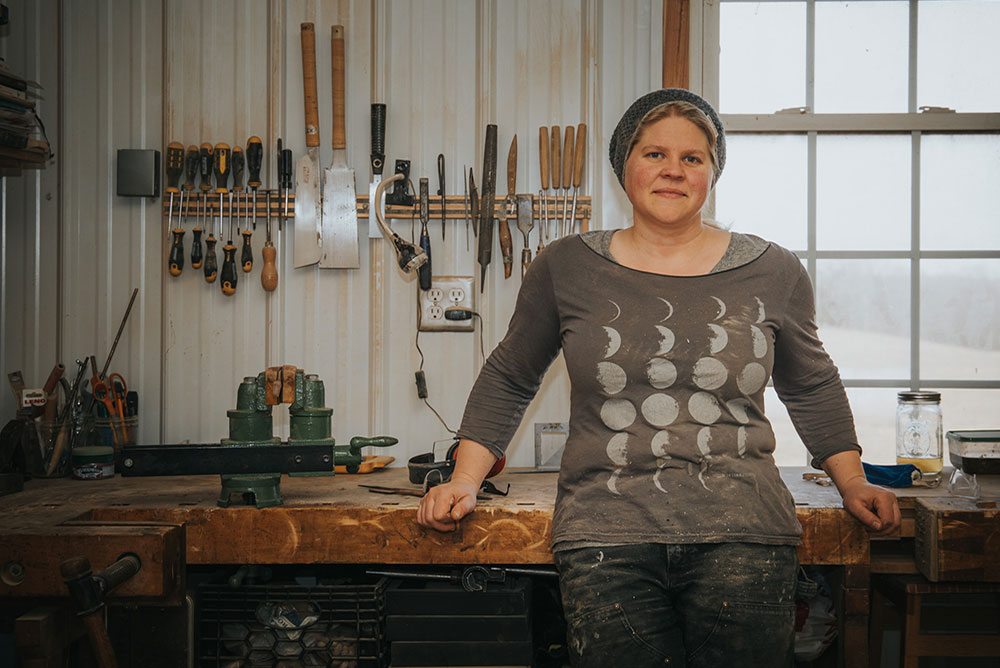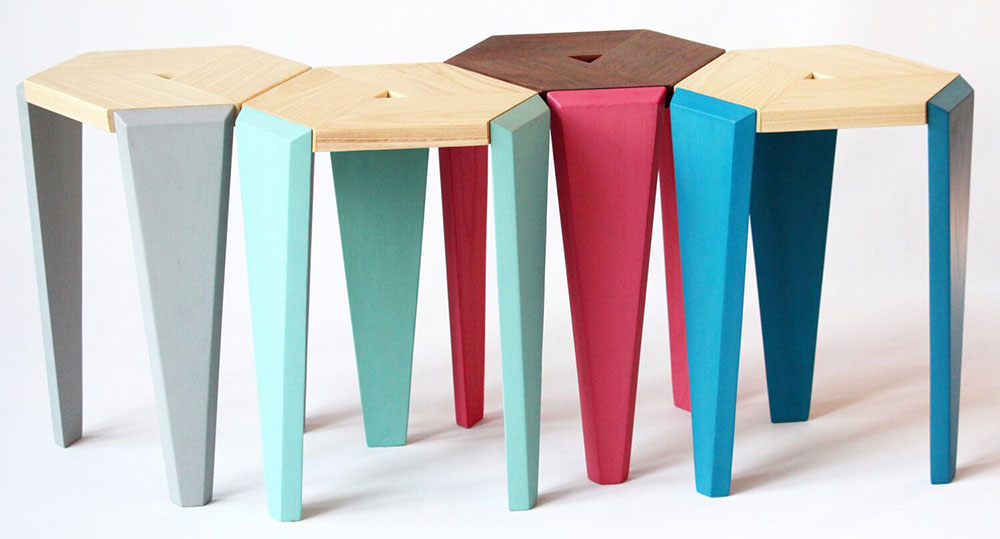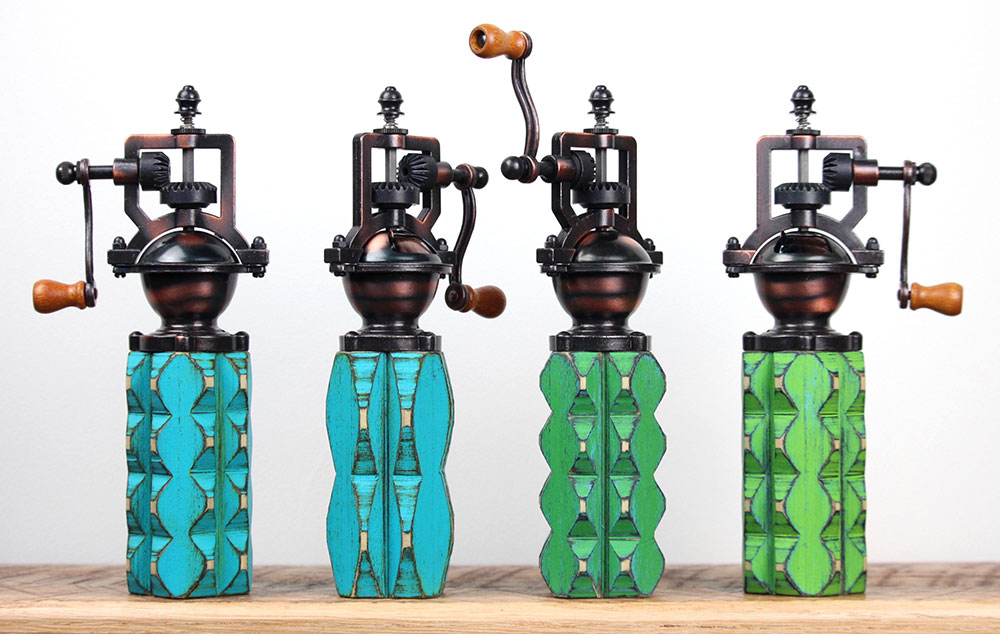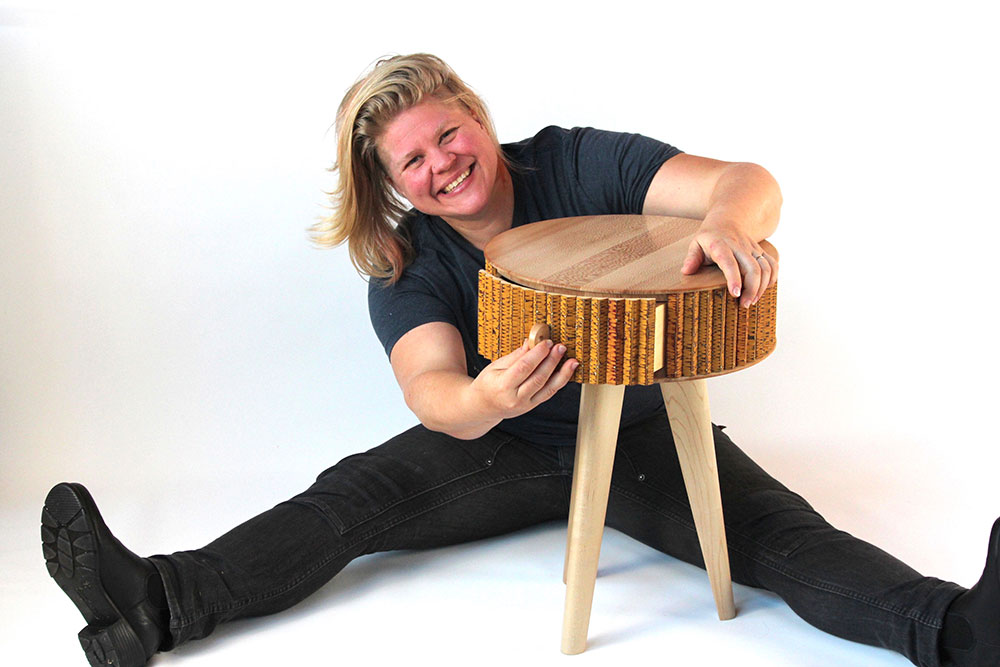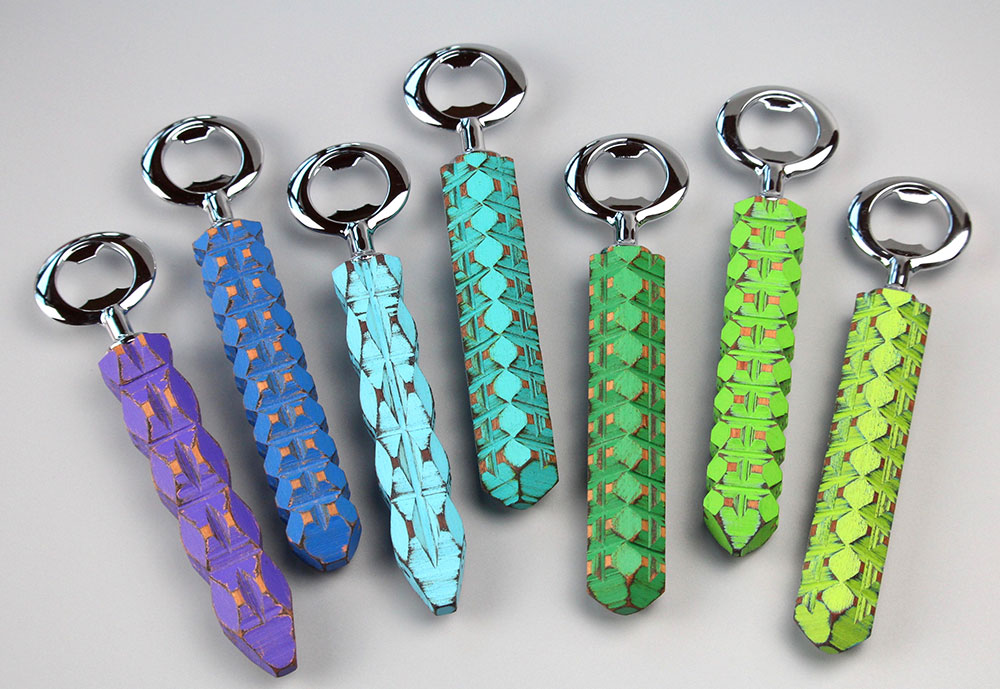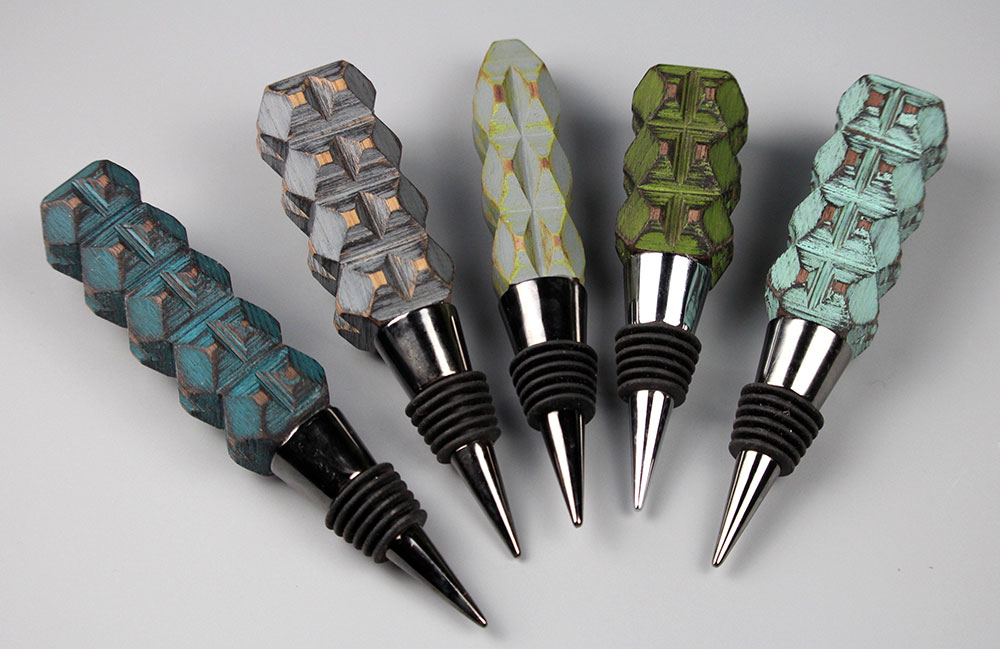Meet Smithsonian Craft Show Artist Christina Boy
By Janet Kelly
GROWING UP in Bonn, Germany, Christina Boy was influenced by the Bauhaus dictum: Form follows function. And clean, simple lines.
Boy knew she loved working with her hands and wanted to learn how to make furniture. She got some early on-the-job training managing an office and design showroom in Germany, but that only got her so far. Twenty years ago she came to the U.S. to go to Virginia Commonwealth University in Richmond, Virginia to study furniture design in the school’s crafts materials program. After completing her BFA in 2007 she continued her studies during a two-year fellowship at Penland School of Crafts in North Carolina. When she returned to Virginia in 2011 she built her one-woman studio with the help of her husband and father-in-law.
Although Boy works mostly with domestic hardwoods (“nothing exotic”), sourced from a local lumberyard and also from a “tree guy,” who cuts a lot of wood from James Madison’ estate in nearby Montpelier, she also uses salvaged wood.
“Some of the salvaged wood comes from my husband who is a contractor. I go through his dump truck when it comes back from a job site. At my lumberyard there is a bargain bin with imperfect and warped wood that I cut up into usable sections for smaller items and I also use my own cutoffs and scraps that accumulate from my furniture-making practice. I try to use as much as I can and whatever cannot be transformed goes to other family members as kindling for their wood stoves in colder months.”
“Lots of people I know have small spaces,” says Boy. That inspires her designs, such as Stool 33, a multifunctional piece with a geometric top that can be made from ash, bleached ash, walnut or cherry wood and a choice of color for the legs—sea green, sea glass, blue, oyster gray, granny smith or pink. Depending on the combination chosen, notes Boy, you can have a classic piece or something funkier. Custom—which makes up 75 percent of her business—is also an option. “I work with clients to make my pieces their own,” she says.
Because large items are harder to sell online—customers want to see scale—she decided that along with her furniture, she would make smaller, giftable pieces for the show, including pepper grinders ($95), bottle openers ($45) and stoppers ($42) Bonus: they’re also easier to ship.
The virtual Smithsonian Craft Show, “Celebrating American Artistry,” begins October 23 at 9am and runs through October 31 at 10pm. For more information and details, go to the event’s website.
